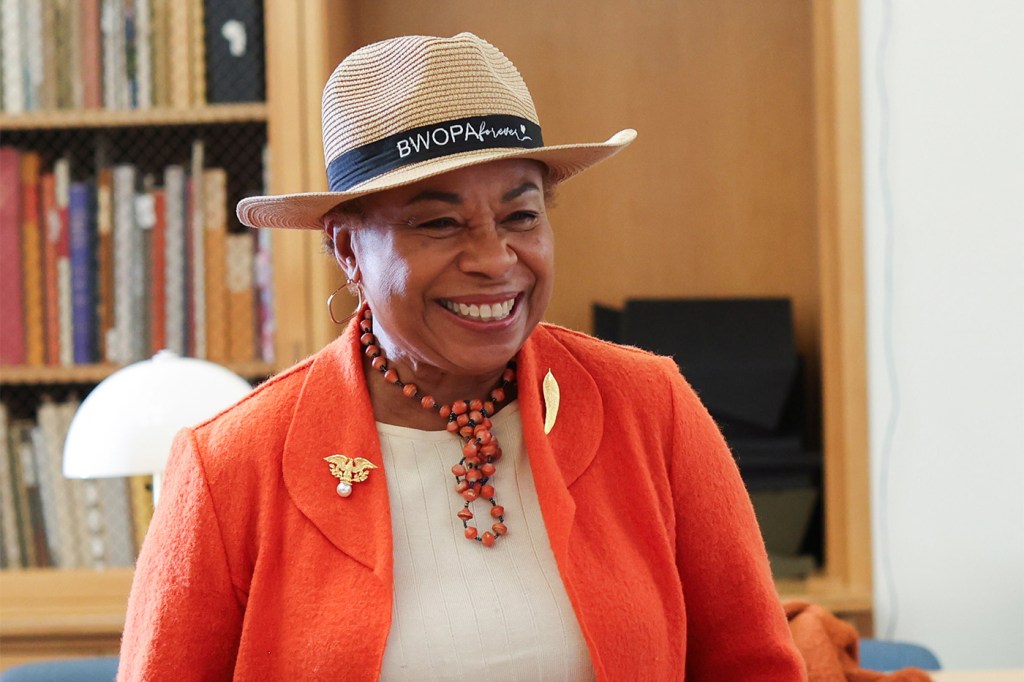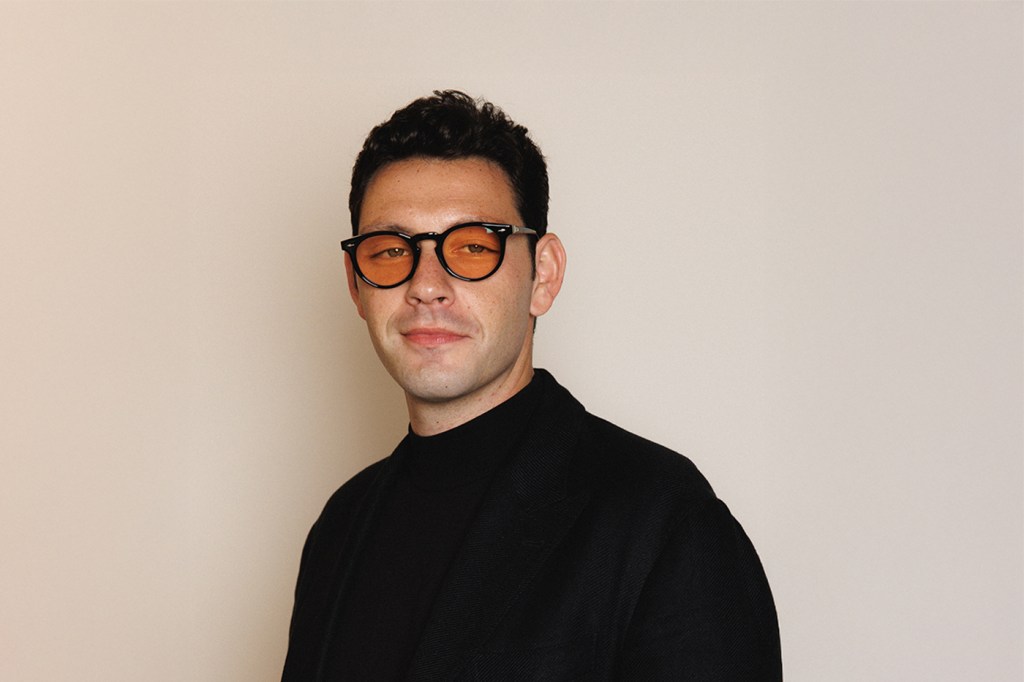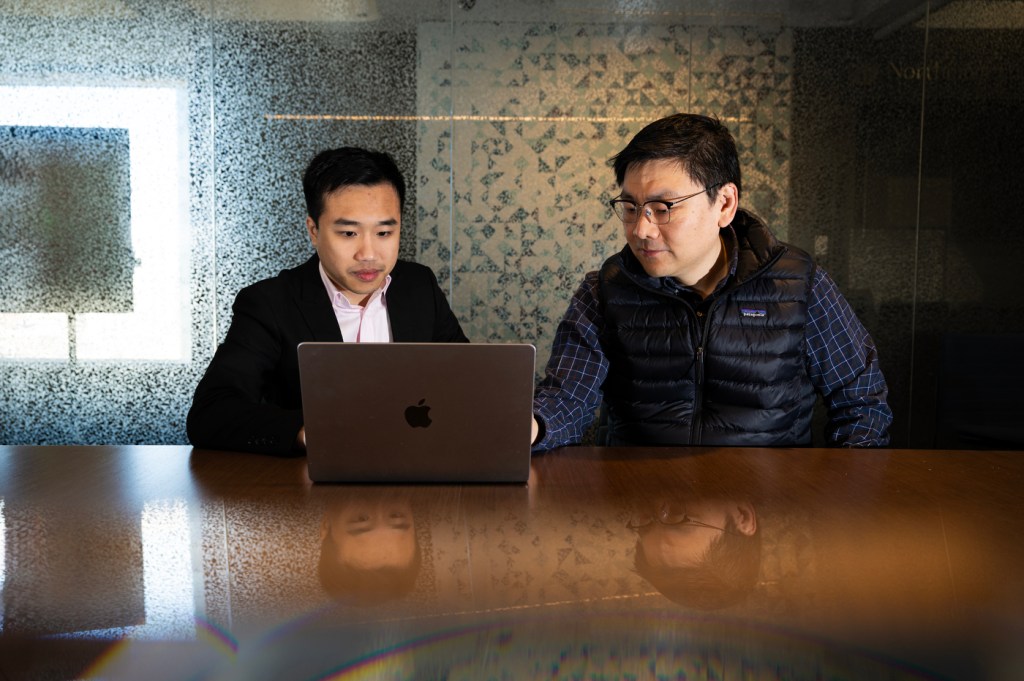‘Growth is imbalance’: How Naomi Rajput is squeezing everything out of her Northeastern education
The fourth-year pre-med student, startup founder, campus club president and musician has stratospheric career plans — and the packed schedule to match.

On Feb. 22, Naomi Rajput started her day by giving a TedX Talk in Northeastern University’s ISEC building. Rajput is fourth-year biological neuroscience major on a pre-med track; her 15-minute lecture, “The Growth Blueprint,” makes the case that facing challenges can make a person’s neural networks stronger, weaving together scientific studies and anecdotes from her own life.
“With effort, we can quite literally rewire our brains,” she argued in front of slides alternating brain scans and personal childhood photos. “The harder things you do, the stronger your mind becomes.”
Giving a Ted Talk would be a highlight of most undergraduate careers, but Rajput didn’t have much time to savor it. Later that day, she took part via Zoom in TigerLaunch — a national entrepreneurship competition for college students — pitching Eden, the AI health care startup she co-founded last year.
“We’re reimagining health care administration and bringing human connection back through AI,” says Rajput, recounting the company’s elevator pitch. The central idea is to leverage artificial intelligence to sort and complete mundane administrative tasks, like intake forms and call screening, so health care professionals have more face time with patients. It received an honorable mention at TigerLaunch.
And those two generally all-encompassing pursuits — a pre-med course load and research; building a startup — nevertheless represent a small part of Rajput’s interests and activities.
Rajput is also the founder and president of Northeastern’s Indian Cultural Association student club, which holds regular meetups and puts on events for major Indian holidays and celebrations. That same evening, the club held a performance showcase of Indian Music and dance in collaboration with the Berklee College of Music’s ICA chapter at the Fenway Center. In addition to helping organize the event, Rajput sang and played drums with her band NU Aaroh, an alt rock-Indian fusion group that has performed more than 40 shows around the Boston area.
It was Rajput’s second musical gig of the week. She also has a standing engagement at Hebrew Senior Life in Boston’s Roslindale neighborhood, where she has worked for the past year as music therapy volunteer for dementia patients. On the volunteer front, her resume also includes alternative spring break trips around the country and time with Link Health, a local nonprofit helping Boston residents sign up for SNAP benefits.
“She has so much on her plate all the time,” says Melissa Rejuan, a fellow Northeastern student and friend. “She’s super motivated to juggle a lot of things.”
It’s fair to wonder how Rajput has the energy for it all. Until you meet her.
“I’m pretty hyper,” she laughs. Rajput has been scheduled to the hilt since she was little; desperate to tire her out, her mother loaded her up with dance and music classes starting in preschool.
On Northeastern’s Boston campus, she’s channeled that tirelessness into an undergraduate career that reads like a Northeastern University bucket list: Start a club. Found a startup. Publish research. Go on co-op. Volunteer. Perform.

And doing all of it was the point of coming to Northeastern in the first place. Rajput’s high school academic adviser once told her that 90% of university students don’t make use of even one-third of their schools’ available resources.
True or not, “that just stuck with me as I entered my freshman year,” she says. “And I was like, that won’t be me. Let’s go hard. Let’s go fast.”
Constant motion
If Rajput is in constant motion, it may be because she’s used to it. Born in New York to Indian parents, she moved frequently for her father’s IT career, shuttling back and forth with her older brother and twin sister between several U.S. and Indian cities. When it came time to apply for colleges, simply corralling her academic transcripts took a five-person Zoom call.
“Every year from age 10 to 18 I was in a new school,” she says. “In ninth grade I was in New Jersey for the first semester and Mumbai the second semester.”
Naturally, she applied to colleges all over. A guidance counselor turned her attention to Northeastern, which stood out for its strong pre-med track, co-op program and entrepreneurial tilt.
“My academic adviser at the time put it on my list,” she remembers. “I think it was just meant to be. The kind of person I am — this campus amplifies that.”
But Rajput struggled in her early months in Boston, both socially and academically.
“She was fairly timid, pretty quiet,” says Jenn Ingemi, an associate teaching professor of behavioral neuroscience who serves as an undergraduate adviser for the major and taught Rajput in a freshman biopsychology class.
Editor’s Picks

Will the SAVE Act protect the integrity of voting or make registration too difficult? Northeastern experts explain

Living tissues may form like avalanches, Northeastern researchers say — a discovery that could aid new treatments

Build muscle strength if you want to live longer and healthier, Northeastern experts say

Northeastern researchers urge FDA to revoke approval of controversial artificial blood vessel

Accounting research shows how firms can strengthen diversity among auditors
“She’s an international student, and I think she had a little bit of a hard time adjusting to life on a U.S. college campus. To see where she is now, it almost feels like she’s a different person.”
A hard worker, Rajput met often with Ingemi to improve her academics; the professor also advised her as she dipped her toes into the research landscape. One of Rajput’s earliest projects involved creating predictive modeling for Northeastern’s SMILe Lab, where she is an undergraduate research assistant.
As a researcher, “she’s really creative and thinks on such a very big level,” Ingemi says. “To have her level of insight of, ‘What are the interesting questions to ask? What are the problems that are important? And [how] can I use my expertise in neuroscience to answer questions that maybe feel unrelated?’ That’s not typical for an undergrad.”
Rajput is especially interested in the intersection of AI and health sciences — a focus that led eventually to Eden. The embryonic startup, which just received a $100,000 round of pre-seed funding, aims to use machine learning to triage time-consuming administrative tasks in health care.
For example, voice recognition and ChatGPT can help in sorting through intake phone calls, funneling the most urgent ones to human administrators and letting AI bots take on the more routine tasks of scheduling appointments or taking insurance information
“So it reduces that workload,” Rajput says.
That big-picture problem-solving came to bear on the social front, as well. Rajput says that when she came to Boston, her feelings of isolation stemmed in part from the insularity among her fellow Indian students.
“Indian Americans tended to hang out with other Indian Americans, and international Indians tried to hang out with other international Indians. And I didn’t fit in any box,” she says. “I mentioned this to a mentor, and she said, ‘So what are you going to do about it?’ And I thought, ‘What am I going to do about it?’”
Founded in spring 2023, ICA focuses on bridging those gaps with meetups focused around different areas of Indian culture. It also holds discussions and panels on top-of-mind topics for Indian college students, including acclimating to campus life and the ins and outs of finding co-ops as an international student.
Imbalance is growth
All of this naturally begs the question of how Rajput balances it all. Her answer: She doesn’t. And right now, that’s not the point.
“I live by this quote: ‘Aggressive growth is a product of imbalance,’” she says.
“At this stage in my life, I want to grow so aggressively that I’m OK with imbalance. I want to grow my consciousness, my ability to change, my ability to absorb knowledge.”
Her future plans are equally ambitious: after graduating in 2026, she wants to enroll in medical school, already scouting cities and campuses that might enable her to continue on a path as a tech entrepreneur at the same time.
This mindset comes with its sacrifices: Rajput hasn’t watched TV in at least two years, and her friends know she probably won’t be around to hang out on a typical evening. She’ll emerge for the big stuff, though.
“Naomi will drop everything to come help you,” Rejuan says. “It’s known that if you go to the hospital, she’s going to show up.”
That impulse fits with the throughline of her vast array of interests: having a positive effect, and a big one, wherever possible.
“It was very encouraged in my family to do something with your life that creates a bigger ripple effect,” she says. “Success was encouraged, but with the caveat of what are you doing with that success?”
University News
-
 Barbara Lee, Mills College graduate and longtime U.S. representative, elected mayor of Oakland
Barbara Lee, Mills College graduate and longtime U.S. representative, elected mayor of Oakland -
 Northeastern announces speakers for 2025 global campus commencements, and college and school ceremonies
Northeastern announces speakers for 2025 global campus commencements, and college and school ceremonies -
 Elliot Grainge, a successful entrepreneur, record executive and Northeastern graduate, is the 2025 undergraduate commencement speaker
Elliot Grainge, a successful entrepreneur, record executive and Northeastern graduate, is the 2025 undergraduate commencement speaker
Recent Stories
-
 Will the SAVE Act protect the integrity of voting or make registration too difficult? Northeastern experts explain
Will the SAVE Act protect the integrity of voting or make registration too difficult? Northeastern experts explain -
 Living tissues may form like avalanches, Northeastern researchers say — a discovery that could aid new treatments
Living tissues may form like avalanches, Northeastern researchers say — a discovery that could aid new treatments -
 Build muscle strength if you want to live longer and healthier, Northeastern experts say
Build muscle strength if you want to live longer and healthier, Northeastern experts say
